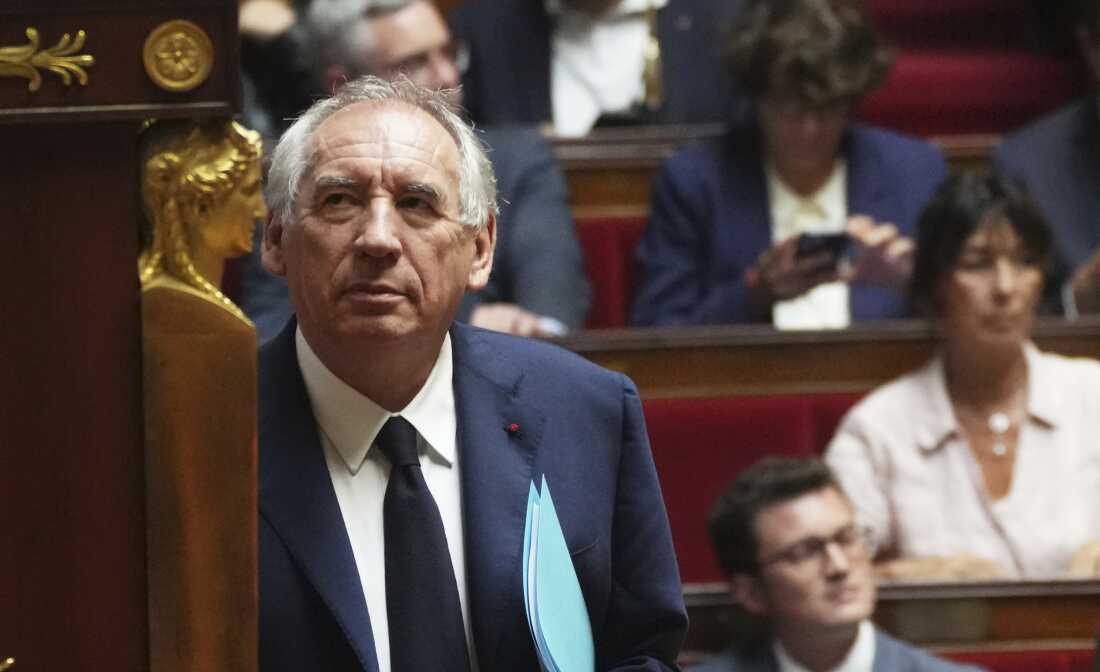France is once again at a political crossroads, teetering on the edge of economic and social upheaval.
Prime Minister François Bayrou, 74, sounded the alarm today, warning that the country risks repeating Britain’s mistakes as it struggles with a mounting debt crisis.
His remarks came just hours before a self-imposed no-confidence vote in parliament—one he is widely expected to lose.
Bayrou’s Warning to the Nation
In his final push to salvage his political career, Bayrou cautioned against taxing the wealthy to solve France’s debt problems.
“The rich will simply leave,” he said, pointing out that European neighbors like Luxembourg, Belgium, and the Netherlands offer alternative tax havens for businesses.
Drawing lessons from the UK, he added, “When Britain taxed foreigners who were previously exempt, they moved away.
Property prices in Milan skyrocketed as a direct consequence.”
A Nation Drowning in Debt
Bayrou did not mince words about France’s financial predicament, describing it as “life-threatening” and a potential trap for future generations.
The country’s debt is approaching £3 trillion, and he emphasized the inevitability of the problem: “You can remove the government, but you can’t escape reality.
France hasn’t had a balanced budget in 51 years. Every year, the debt grows.”
If Bayrou falls in today’s vote, it would mark the first time in the Fifth Republic’s history that a sitting prime minister has lost office so publicly and decisively.
Macron’s Leadership Under Fire
Bayrou’s departure would also highlight President Emmanuel Macron’s precarious position.
Already lacking a parliamentary majority, Macron has now seen six prime ministers serve under him in less than nine years.
Calls for his resignation are growing louder, fueled by planned nationwide protests dubbed “Block Everything.”
Authorities have issued warnings of potential sabotage, strikes, and disruptions reminiscent of the Yellow Vests movement in 2018.
Protesters are reportedly planning to block trains, target oil refineries, and stage supermarket walkouts.
Trade unions are also calling for mass demonstrations on September 18.
The Parliamentary Showdown
The vote in the Assemblée Nationale comes after just nine months of Bayrou’s tenure, following months of tension over his austerity budget that aims to cut nearly €44 billion (£38.19 billion) to rein in debt.
Bayrou has framed the budget as essential to prevent chaos, warning of “a terribly dangerous period… a time of hesitation and turmoil.”
Despite these warnings, opposition parties—including Marine Le Pen’s National Rally—have pledged to vote against him.
Bayrou’s own allies have been blindsided by his decision to call the vote, and he has given no indication that he expects to survive.
A History of Short-Lived Governments
If Bayrou is ousted, he will follow Michel Barnier as the second consecutive French prime minister to be voted out in under a year.
Macron will then face the difficult choice of appointing a seventh prime minister or calling snap elections—though either option carries significant risk.
A deeply divided parliament could stall reforms, and snap elections may only result in another hung parliament.
France’s Debt Crisis and Economic Pressure
The political instability comes at a critical moment for France and the EU.
The country’s debt currently stands at 113.9% of GDP, with last year’s deficit nearly double the EU’s 3% limit.
Bond spreads—the premium investors demand for holding French debt—are widening, signaling growing market anxiety.
The government’s collapse threatens France’s ability to rein in spending, with potential credit downgrades looming.
Macron’s Options and Potential Alliances
While Macron’s international profile remains strong—particularly in leading European efforts to end Russia’s war on Ukraine—his domestic position is fragile.
Polls show record disapproval, with 77% of the public dissatisfied and 64% calling for his resignation.
Macron is reportedly exploring cooperation with the Socialist Party, which has offered to take on the prime minister role and provide draft budgets.
However, support from other left-wing forces is uncertain.
Macron is keeping his options close, aware that snap elections may not improve the fortunes of his centre-right bloc.
Rising Social Tensions
Beyond the halls of parliament, France faces social unrest.
Left-wing collectives and unions have called for coordinated strikes and demonstrations in September, threatening to paralyze transport, industry, and commerce.
The country may be heading toward a repeat of the social upheavals seen during the Yellow Vests movement, highlighting the urgency of political compromise.
The Road Ahead
As France prepares for what could be one of its most destabilizing parliamentary votes in years, the stakes could not be higher.
With a deeply divided parliament, a debt crisis threatening economic stability, and social tensions mounting, the country is staring down a perfect storm of political, economic, and social crises.
The coming days will test not just Bayrou’s fate, but Macron’s legacy and France’s ability to navigate through its mounting challenges.
